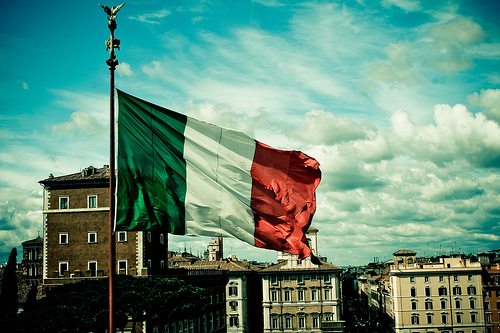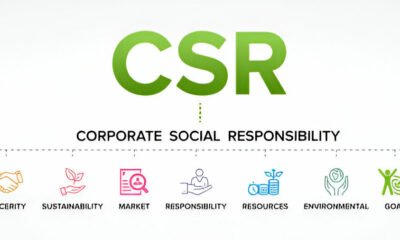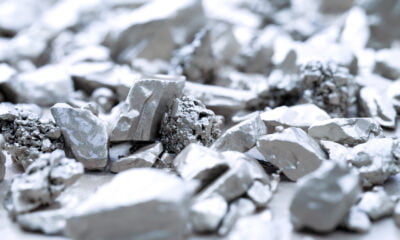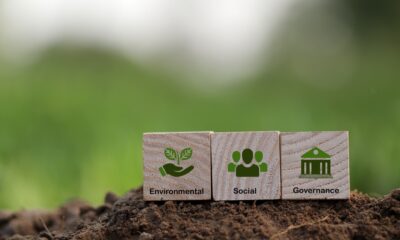

Features
Investimenti responsabili: a glance at Italy’s responsible investment market
Dated stereotypes once had Italy down as the ‘pizza, mafia and mandolin’ country. But as it is, the bel paese has huge potential in sustainable finance, and could see responsible investment flourish over the next years.
Natixis Asset Management’s Mirova division recently launched three new sustainable and responsible investment (SRI) funds for Italian investors: called Global Climate Change, Europe Sustainable Equity and Euro Sustainable Corporate Bonds.
The trio of funds may help Italy come out from the economic stalls and allow the country to exploit its rich renewable energy resources. But it also offers the opportunity to look closer at its role in sustainable investment market.
Forum per la Finanza Sostenibile (the Sustainable Finance Forum) is a founding member of the European Sustainable Investment Forum (Eurosif). It states on its website, “In its activities Forum per la Finanza Sostenibile interacts with the demand side (retail and institutional investors), the supply side (financial operators) and intermediaries (consultants and sales network) of financial markets, aiming to increase the amount of assets invested according to social responsibility criteria and to improve the effectiveness of this practice.”
Other bodies in the Italian sustainable investment industry include the religion-focused SRI Group and its consulting arm Greenpv.
But broadly speaking, what is the state of sustainable and responsible investment in Italy? Is there room for ethics and sustainability in finance, or should we just be content with its good food and wine?
Italian journalist Andrea Di Turi, a specialist in responsible investment and co-ordinator of the MondoSRI blog, says the industry has a long way to go.
“Socially responsible investment funds appeared on the Italian market in the 90s but the sector has never actually flourished, and is worth less than €2 billion”, he tells Blue & Green Tomorrow.
“While in other European countries, the SRI funds were growing, in Italy they were even shutting down. Recent relieving measures and the introduction of two Ftse Ecpi Italia Sri ethical indices did not alter the situation.”
There are a few exceptions. For example, Banca Etica, the only 100% ethical bank in Italy, with over €500m (£430m) in assets, has gained increasing popularity and satisfaction from its customers, and as featured in the Economist in the past.
However among big investors and pension funds, Di Turi says sustainable investment is almost unknown and therefore is struggling to force its way into the mainstream arena.
“There is a sort of financial ignorance among Italian savers and investors: socially responsible investment is an evolution of ordinary investment and the majority of the public simply does not know about it”, he says.
“In addition, those who should promote these products do not have a deep knowledge and struggle to promote them on the market.”
However, there are encouraging signs that the country might soon start to value this burgeoning sector.
The first SRI Week – set up to mirror the UK’s National Ethical Investment Week – was held in 2012 and will be repeated in November this year, where the ‘ethical investor of the year’ will also be crowned.
Also last year, it was introduced the Ethical Finance charter, which was signed by some major insurance and financial institutions.
“There are some positive signs for the future”, adds Di Turi.
“In Italy, responsible and sustainable shopping is very popular and could cause a reflective reaction on savers. Also active engagement is growing thanks to institutions like Etica SGR, and FC, both tied to Banca Etica.”
Italy has all the resources to step in the sustainable investment sector, especially considering the great potential it has in terms of clean energy. In 2011, the country managed to produce around the 25% of its electricity needs from renewable sources.
However, the PA consulting group’s Energy Investment Map said that while Italy has “very good resources for almost all renewable energy technologies”, the current economic conditions in the country “provide an adverse environment for investors, as potential cost cuts have to be expected”.
Further reading:
‘Ethical index’ launched to measure Italian banks against international standards
How Europe is still setting the pace on sustainable investment
The love (and corruption) of money: troubling times at the Vatican Bank


 Features11 months ago
Features11 months agoEco-Friendly Cryptocurrencies: Sustainable Investment Choices

 Energy11 months ago
Energy11 months agoThe Growing Role of Solar Panels in Ireland’s Energy Future

 Energy10 months ago
Energy10 months agoGrowth of Solar Power in Dublin: A Sustainable Revolution

 Energy10 months ago
Energy10 months agoRenewable Energy Adoption Can Combat Climate Change




























